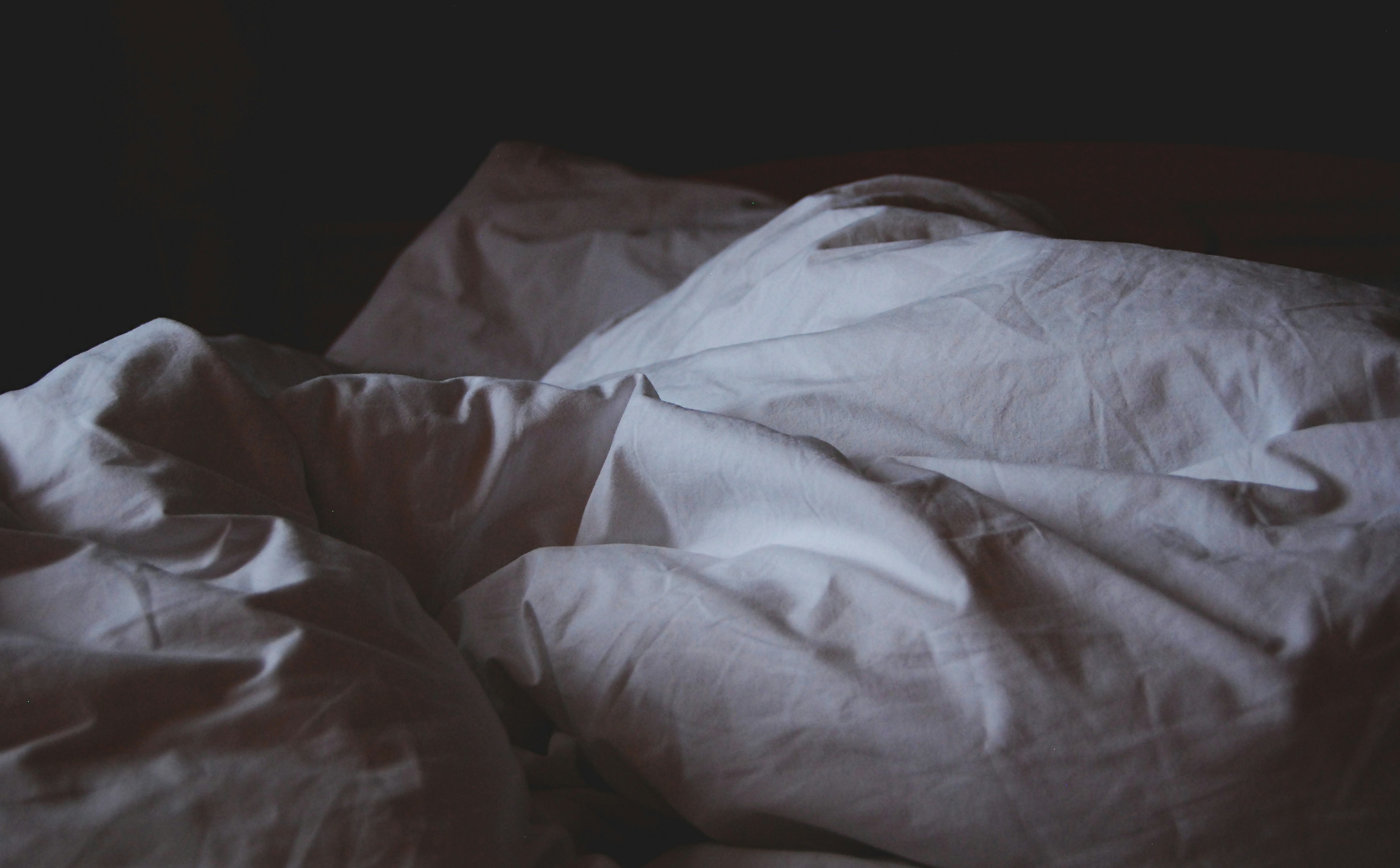Most of us know that sleep is essential, but few realize just how vital it is, especially for our mental health. Think about it—those nights you toss and turn usually lead to a foggy, irritable day, right? Sleep goes beyond physical rest; it plays a central role in keeping our minds sharp, our moods steady, and our emotions balanced. Yet, for millions of people, restful sleep is elusive—and it’s impacting mental health in serious ways.
In this guide, we’ll dive into why sleep and mental health are so deeply connected, what happens when we don’t get enough sleep, and the steps you can take to improve both your sleep and your mental well-being.
How Are Sleep and Mental Health Connected?
The relationship between sleep and mental health is a two-way street: poor sleep can contribute to mental health problems, and mental health issues can interfere with sleep. In fact, studies show that people with mental health conditions are more than twice as likely to experience insomnia and other sleep disorders.
Take depression, for example. Around 90% of people with depression report difficulty sleeping. Similarly, 50% of those with anxiety also struggle with sleep. It’s a loop—poor sleep worsens mental health, and poor mental health interferes with sleep.
During sleep, especially in REM (rapid eye movement) and deep sleep, our brains work hard behind the scenes. REM sleep processes emotions and memories, while deep sleep repairs cells and cleans out toxins that build up during the day. Without sufficient REM and deep sleep, these essential functions don’t happen as efficiently, leaving us more vulnerable to anxiety, stress, and mood swings.
The Role of REM and Deep Sleep in Mental Health
Two key stages of sleep play significant roles in mental health:
REM Sleep: Known for being the “dream state,” REM is when the brain is actively processing emotions and memories. It’s like an emotional filing system, helping us store what matters and discard what doesn’t. Without enough REM sleep, our brains struggle to manage emotions, making us more reactive and moody.
Deep Sleep: During deep sleep, the brain removes toxic proteins linked to neurodegenerative diseases. This stage is essential for memory consolidation and overall brain health. People who don’t get enough deep sleep may notice they feel foggy, less focused, and more prone to emotional reactivity the next day.
Effects of Sleep Deprivation on Mental Health
Sleep deprivation doesn’t just leave you tired—it affects the brain’s ability to handle even simple tasks. Let’s take a closer look at how poor sleep can impact mental health:
1. Increased Anxiety
After just one night of poor sleep, the brain’s “fight-or-flight” response kicks into high gear, making it harder to stay calm. Studies have found that 80-90% of people with anxiety disorders report difficulty sleeping, and sleep deprivation only adds fuel to the anxiety fire. Chronic sleep loss can even contribute to the onset of anxiety disorders, creating a cycle that’s tough to break.
2. Depression and Mood Swings
There’s a strong link between sleep and depression. In fact, people with insomnia are 10 times more likely to develop depression than those who sleep well. This is partly because sleep helps regulate neurotransmitters like serotonin and dopamine, which stabilize our moods. Without quality sleep, the brain has a harder time balancing these chemicals, increasing irritability and the risk of developing or worsening depression.
3. Impaired Cognitive Function and Memory
Sleep plays a crucial role in memory formation and cognitive function. Studies show that a single night of sleep deprivation can decrease cognitive performance by up to 20-30%, affecting focus, creativity, and problem-solving. This makes everyday tasks feel harder and increases frustration, which can lead to more stress and mental strain.
4. Reduced Emotional Regulation
Poor sleep interferes with the brain’s ability to regulate emotions. Sleep-deprived people are about 60% more reactive to negative images than those who are well-rested. This heightened emotional reactivity can make us more likely to react strongly to small triggers, strain relationships, and lead to misunderstandings.
5. Lower Stress Tolerance
Sleep-deprived people have lower tolerance for stress, which means that even minor stressors can feel overwhelming. Research shows that chronic sleep deprivation disrupts cortisol regulation, leaving the body in a constant state of “fight or flight.” With increased cortisol levels, people are more likely to experience anxiety, burnout, and, over time, long-term mental health issues.
Common Sleep Disorders and Their Impact on Mental Health
For some people, sleep issues are more than occasional sleepless nights. Chronic sleep disorders can have a significant impact on mental health. Here’s a look at a few common sleep disorders and their effects:
Insomnia
Insomnia affects about 10-15% of adults in the U.S., making it the most common sleep disorder. People with insomnia are more likely to suffer from anxiety, depression, and other psychiatric disorders. In fact, 40% of adults with insomnia have at least one mental health condition, creating a cycle that makes both issues harder to manage.
Sleep Apnea
Sleep apnea is a disorder where breathing stops and starts repeatedly, leading to poor-quality sleep and frequent awakenings. Studies show that those with sleep apnea are almost three times more likely to experience depression than those without it. Untreated sleep apnea can also worsen cognitive issues and increase fatigue, leading to more stress and frustration during the day.
Restless Legs Syndrome (RLS)
RLS is a condition that causes uncomfortable sensations in the legs, often worsening at night. It can make it difficult to fall asleep and stay asleep, leading to chronic sleep deprivation. People with RLS are twice as likely to experience mood disorders like depression and anxiety due to the constant disruption of sleep.
The Importance of Good Sleep Hygiene for Mental Health
Good sleep hygiene—the habits and practices that promote better sleep—can make a big difference in breaking the cycle of poor sleep and mental health. Let’s look at a few science-backed ways to improve sleep hygiene.
1. Stick to a Consistent Sleep Schedule
Your body has an internal clock, known as the circadian rhythm, which regulates sleep and wakefulness. Research shows that people who stick to a consistent sleep schedule experience 15-20% better sleep quality compared to those with irregular sleep patterns. Going to bed and waking up at the same time every day helps your body’s clock stay in sync.
2. Create a Relaxing Bedtime Routine
Establishing a bedtime routine signals to your brain that it’s time to wind down. This could include reading, listening to calming music, or practicing relaxation exercises. Studies show that people who spend 30 minutes in a relaxing routine before bed fall asleep faster and report better sleep quality than those who don’t.
3. Make Your Sleep Environment Comfortable
A comfortable sleep environment makes a huge difference in sleep quality. The ideal room temperature for sleep is typically around 60-67°F, and keeping the room dark and quiet can improve your chances of sleeping well. Blackout curtains, a comfortable mattress, and reducing noise levels have been shown to improve sleep quality by 20-25%.
4. Limit Caffeine and Alcohol Intake
Caffeine can stay in your system for up to six hours, so it’s best to avoid it in the afternoon and evening. Similarly, while alcohol may help you fall asleep faster, it disrupts REM sleep, leaving you feeling groggy. People who consume caffeine or alcohol within three hours of bedtime are more than twice as likely to experience sleep disturbances.
5. Practice Relaxation Techniques
If anxiety keeps you up at night, relaxation techniques like deep breathing, progressive muscle relaxation, and mindfulness meditation can help. A study published in JAMA Internal Medicine found that participants who practiced mindfulness experienced a 50% reduction in insomnia symptoms, improved sleep quality, and reduced symptoms of anxiety and depression.
6. Limit Naps During the Day
Long naps or late-afternoon naps can interfere with your ability to fall asleep at night. Research shows that short naps (10-20 minutes) can improve alertness without disrupting nighttime sleep, but longer naps increase the risk of sleep problems. If you’re having trouble sleeping at night, try to avoid napping during the day altogether.
When to Seek Professional Help
If you’ve tried improving your sleep hygiene but still struggle with sleep or experience ongoing mental health issues, it may be time to consult a professional. Here are a few evidence-based treatments that can help:
Cognitive Behavioral Therapy for Insomnia (CBT-I): CBT-I has been shown to be effective for 75-80% of people with insomnia, reducing symptoms and improving sleep quality. It helps by changing the thoughts and behaviors that interfere with sleep, often providing longer-lasting relief than medications.
Medication: In some cases, medications may be prescribed to help with sleep. These are usually short-term solutions, as they can have side effects and carry a risk of dependency. It’s best to discuss any medications with a healthcare provider.
Mindfulness-Based Therapies: Mindfulness meditation and other stress-reduction techniques can improve sleep quality and reduce symptoms of anxiety and depression. Research shows that regular mindfulness practice can improve sleep duration by an average of 30 minutes per night.
Small Changes for Big Impact: Steps to Better Sleep and Mental Health
Good sleep doesn’t just happen—it’s built through habits, routines, and, sometimes, a bit of trial and error. Here’s a quick summary of small changes that can improve both your sleep and mental health:
- Set a consistent sleep schedule to regulate your circadian rhythm and aim for 7-8 hours of sleep per night.
- Limit screen time before bed to support your body’s natural melatonin production, which helps you fall asleep.
- Establish a calming bedtime routine that prepares you for sleep and reduces nighttime stress.
- Practice relaxation techniques like deep breathing or mindfulness meditation to calm your mind before bed.
- Create a comfortable sleep environment that’s cool, quiet, and dark.
Conclusion: Sleep as the Foundation for Mental Wellness
The connection between sleep and mental health is undeniable. Sleep isn’t just “down time”—it’s the foundation that keeps our minds healthy, emotions balanced, and daily interactions smoother. Prioritizing sleep and making it a cornerstone of your wellness routine is an investment in a stronger, healthier mind.
If sleep issues persist despite lifestyle changes, don’t hesitate to seek help. Small steps to improve sleep can lead to big changes in mental health, helping you approach life with greater clarity, resilience, and peace of mind.
Improve your sleep with Hapday, Your Wellbeing Assistant
Join the millions of people using Hapday. Improve overall wellness & sleep.




